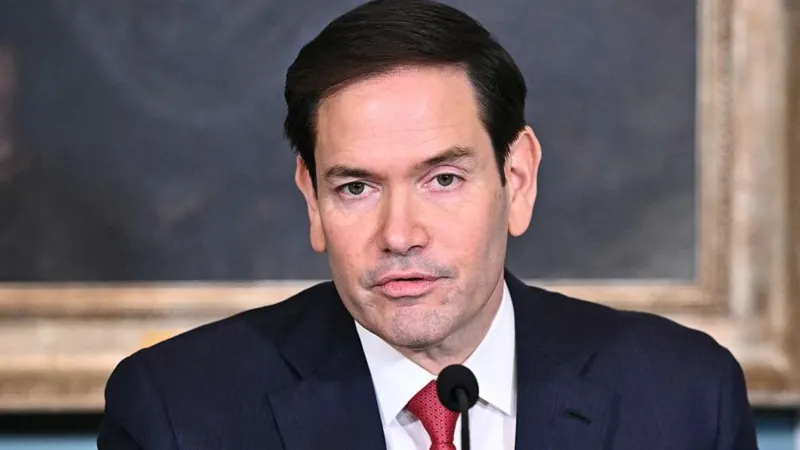The United States has announced new sanctions targeting the Palestinian Authority (PA) and the Palestine Liberation Organisation (PLO), including a decision to deny visas to their officials, escalating tensions over recent international support for Palestinian statehood.
The move, declared by Secretary of State Marco Rubio’s office, is widely seen as a response to a French-Saudi-led conference at the United Nations this week, where support for a two-state solution gained momentum. Countries such as France, the UK, and Canada expressed commitments to recognize an independent, demilitarized Palestinian state later this year, some under certain conditions.
The Trump administration condemned these developments, warning of diplomatic repercussions for countries it deemed to have made “anti-Israel” statements during the UN event.
In its announcement, the State Department accused the PA and PLO of trying to internationalize the conflict with Israel, citing actions like turning to the International Criminal Court (ICC) and the International Court of Justice (ICJ). It also repeated long-standing U.S. and Israeli accusations that the Palestinian leadership supports terrorism, referencing textbook incitement and stipends paid to the families of Palestinians imprisoned or killed by Israeli forces.
The move comes just months after the Trump administration lifted sanctions on Israeli settlers accused of violence against Palestinians in the occupied West Bank.
A senior Palestinian official described the sanctions as “revenge” for the recent wave of international recognitions of Palestinian statehood. In a statement, the Palestinian Authority said the U.S. actions were part of escalating efforts aimed at undermining its recent diplomatic gains.
“These campaigns have been escalating in response to the significant and successive achievements of Palestinian diplomacy,” the PA said, referring to the successful UN conference and related recognitions of Palestinian statehood.
Mustafa Barghouti, a prominent member of the Palestinian National Initiative (PNI), criticized the U.S. for punishing “the victim” instead of those committing what he described as war crimes in Gaza and the West Bank. “Trump’s administration… is instead punishing the victim, which is the Palestinian people,” he told the BBC.
The decision was welcomed by Israel, with Foreign Minister Gideon Sa’ar thanking Secretary Rubio and the Trump administration. “This important action… exposes the moral distortion of certain countries that ran to recognize a virtual Palestinian state while turning a blind eye to its support for terror,” Sa’ar said.
The PA has consistently rejected the notion that its financial stipends support terrorism, arguing instead that the funds are humanitarian support for Palestinian prisoners and their families—many of whom are detained without trial under Israeli military law.
French officials recently noted that the PA had shown willingness to reform these payments in response to France’s commitment to recognizing a Palestinian state.
This week’s UN conference further highlighted the United States’ growing isolation in global diplomacy on the Israel-Palestine conflict, as many nations voiced sharp criticism of Israel’s ongoing war in Gaza and called for a viable peace process.
While the travel ban is limited in scope and may not affect financial or broader diplomatic relations, it marks a significant step. PA and PLO officials already face a complex, restrictive visa process to enter the U.S., often requiring rarely granted exemptions. It remains unclear whether the ban will apply to the Palestinian mission to the UN, where both the ambassador and deputy are U.S. citizens.















Leave a Reply